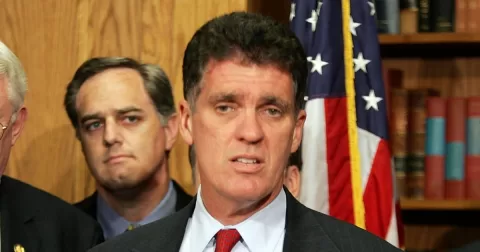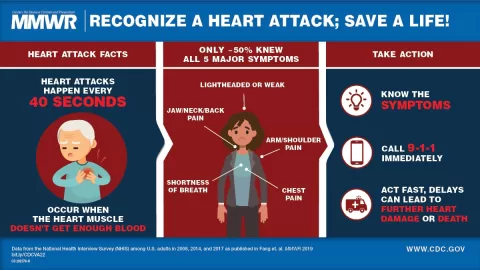Childhood vaccination support is an essential topic in public health discourse, especially as debates over vaccination mandates and parental opt-outs continue to evolve. Recent surveys indicate a significant portion of the population believes that all children should receive vaccinations to protect them from infectious diseases, thereby safeguarding community health. However, discussions surrounding vaccination exemptions and school vaccination policies have gained traction, reflecting a shift in public opinion. As parents navigate these complex choices, understanding the implications of vaccination mandates becomes crucial for ensuring the well-being of future generations. With overwhelming evidence supporting the benefits of vaccinations, fostering childhood vaccination support remains a priority for health advocates and policymakers alike.
The conversation surrounding vaccination for children is increasingly relevant as parents and guardians grapple with school health requirements. Terms like immunization policies and health mandates are at the forefront, as communities strive to protect their youth from preventable diseases. The dialogue has expanded to include parental rights and the implications of opting out of vaccinations, raising questions about individual choice versus public health safety. In light of these discussions, exploring the nuances of school health regulations and vaccination compliance is vital for understanding the broader context of childhood health. As support for various vaccination exemptions fluctuates, the importance of informed decision-making in childhood immunization cannot be overstated.
The Importance of Childhood Vaccination Support
Childhood vaccination support is a critical public health issue that impacts the wellbeing of countless children and the broader community. Vaccines play an essential role in preventing infectious diseases, safeguarding not only the vaccinated individuals but also those who cannot receive vaccines due to medical reasons. With rising concerns about vaccine hesitancy, it is vital for communities to foster an environment that encourages vaccinations, emphasizing the importance of herd immunity. Educating parents about the benefits of vaccinations can help alleviate fears and misconceptions surrounding them, ensuring children are protected against diseases like measles and mumps.
Despite the overwhelming evidence supporting vaccinations, a significant portion of the population still expresses concerns about mandates. The recent survey highlights that while 73% of respondents support mandatory childhood vaccinations, there is a noticeable decline from previous years. This shift raises questions about the effectiveness of public health messaging and the perceived necessity of vaccination mandates. Engaging parents and communities in discussions about vaccination can help bridge the gap between support for vaccination and the hesitance towards mandates, fostering a culture where vaccinations are seen as a communal responsibility rather than an individual choice.
Trends in Vaccination Mandates and Parental Opt-Outs
The growing trend of parental opt-outs from vaccination mandates reflects a shifting landscape in public health policy. The increase in support for allowing parents to exempt their children from vaccinations for medical, religious, and personal reasons poses challenges for public health officials. While vaccinations are proven to reduce the incidence of infectious diseases, the rise in opt-outs can lead to lower immunity levels in communities, increasing the risk of outbreaks. Policymakers must navigate this complex issue by balancing parental rights with the need to protect public health, particularly in school settings where children congregate.
State policies on vaccination mandates vary widely, with some states offering more comprehensive exemptions than others. The data shows that support for medical opt-outs has grown significantly across all political affiliations, indicating a shift in public sentiment towards accommodating parental choices. However, the substantial increase in the support for religious and personal opt-outs raises concerns about the potential for decreased vaccine coverage. It is essential for public health campaigns to address these concerns by providing clear information on the risks associated with non-vaccination, ultimately ensuring that parents make informed decisions.
Understanding School Vaccination Policies
School vaccination policies are designed to protect the health of students and the larger community by ensuring high vaccination rates among school-aged children. With the requirement for vaccinations to attend school, states aim to minimize the risk of outbreaks of vaccine-preventable diseases. However, the recent survey indicates a decline in support for strict vaccination mandates, highlighting the need for education and outreach to reinforce the importance of these policies. Schools can play a pivotal role by providing resources and information to parents about the benefits of vaccinations and the potential consequences of opting out.
As the landscape of school vaccination policies evolves, it is crucial for stakeholders, including school officials, health departments, and parents, to engage in constructive dialogue. Understanding the reasons behind parental hesitancy towards vaccinations can aid in crafting effective strategies that emphasize the importance of immunization. Additionally, fostering partnerships between schools and healthcare providers can facilitate access to vaccines, ensuring that all children receive the protection they need to thrive and succeed in their educational environments.
Examining Vaccination Exemptions Across States
Vaccination exemptions, whether for medical, religious, or philosophical reasons, significantly impact the effectiveness of vaccination programs. The survey results indicate a notable increase in support for these exemptions, particularly among self-identified Republicans, which can complicate efforts to maintain high vaccination coverage levels. It is essential to examine the implications of these exemptions on public health, especially in light of outbreaks of diseases that vaccines can prevent. Public health officials must collaborate with legislators to ensure that while parental rights are respected, the overarching goal of community health is prioritized.
The growing acceptance of vaccination exemptions may lead to increased scrutiny of state policies, prompting calls for reform. Some advocates argue for stricter regulations on exemptions to ensure that vaccination rates do not drop below safe levels. Conversely, opponents of stricter policies emphasize the importance of parental choice and the need for accommodating various beliefs. Balancing these perspectives is crucial for developing effective vaccination policies that protect public health while respecting individual rights.
Political Affiliation and Vaccination Attitudes
The divide in vaccination attitudes among different political affiliations is a significant factor influencing public health policy. The survey highlights that while support for mandatory vaccinations remains high among Democrats, Republicans show a marked increase in support for opt-outs. This political divide complicates the conversation around childhood vaccinations and necessitates targeted messaging that resonates with various political groups. Understanding these trends can help public health advocates tailor their messaging to align with the values and concerns of different communities.
Engaging with political leaders and influencers can also play a crucial role in shaping public perception of vaccinations. By fostering bipartisan support for vaccination initiatives, advocates can work towards policies that prioritize the health of children while accommodating parental concerns. Creating a unified front in the face of rising vaccine hesitancy is essential for maintaining the effectiveness of vaccination programs and ensuring that all children have access to necessary immunizations.
The Impact of COVID-19 on Vaccination Sentiment
The COVID-19 pandemic has significantly influenced public attitudes towards vaccinations, leading to a complex landscape of support and hesitancy. As highlighted in the survey, the decline in support for vaccination mandates since 2019 suggests that the pandemic may have altered perceptions surrounding public health interventions. Increased exposure to misinformation and debates over vaccine efficacy during the pandemic have contributed to growing skepticism among some parents regarding childhood vaccinations. Addressing these concerns requires a concerted effort from public health officials to provide accurate information and foster trust in vaccines.
Moreover, the pandemic has underscored the importance of vaccinations in preventing widespread outbreaks. Many parents may now recognize the critical role that vaccines play not only in individual health but in community health as well. Public health campaigns that emphasize the link between vaccination and the prevention of future pandemics could help mitigate hesitancy and reinforce the necessity of childhood vaccinations. As communities recover from the COVID-19 crisis, re-establishing robust vaccination programs will be essential to protect children and prevent the resurgence of preventable diseases.
The Role of Public Health Campaigns in Vaccination
Public health campaigns are instrumental in shaping perceptions about vaccinations and influencing parental decisions. With the recent trends showing increased support for opt-outs, it is crucial for these campaigns to address the underlying fears and misconceptions that drive hesitancy. Effective communication strategies that highlight the safety and efficacy of vaccines, along with the potential risks of non-vaccination, can empower parents to make informed choices about their children’s health. Engaging storytelling and relatable messaging can help demystify vaccines and create a supportive environment for discussions.
By incorporating testimonials from healthcare providers, parents, and community leaders, public health campaigns can foster a sense of community support around vaccinations. Highlighting local vaccination success stories can also serve as a motivator for parents to vaccinate their children. Additionally, targeting outreach efforts in communities with historically low vaccination rates can help bridge gaps in immunization coverage, ensuring that all children have access to vital vaccines that protect their health and the health of those around them.
Community Engagement and Vaccination Advocacy
Community engagement is vital for promoting vaccination and addressing concerns related to hesitancy. By involving local leaders and organizations in vaccination advocacy efforts, public health officials can build trust and credibility within communities. Initiatives that encourage dialogue between healthcare providers and parents can help dispel myths and provide evidence-based information about the importance of vaccinations. Creating safe spaces for discussions where parents can ask questions and express concerns can lead to greater acceptance and understanding of childhood vaccination.
Furthermore, community-based programs that offer incentives for vaccinations, such as free clinics or educational workshops, can significantly improve immunization rates. Collaborating with schools, religious organizations, and community centers can enhance outreach efforts and ensure that information about vaccinations reaches all segments of the population. By fostering a culture of vaccination support, communities can work together to protect children and uphold public health standards, ensuring that every child has the opportunity to grow up healthy and safe.
Funding and Accessibility of Vaccination Programs
Funding and accessibility are crucial components of effective vaccination programs. The recent survey indicates strong support for public funding to provide free or discounted vaccines, underscoring the community’s recognition of the need to ensure that all children have access to vaccinations regardless of their family’s financial situation. Public health initiatives that allocate resources towards vaccination programs can significantly reduce barriers for families, ultimately increasing vaccination rates and protecting children from preventable diseases.
Moreover, improving accessibility to vaccinations through community health centers, schools, and local clinics can facilitate participation in vaccination programs. Offering flexible hours, mobile vaccination units, and outreach to underserved communities can help reach populations that may otherwise face difficulties accessing vaccines. As public support for vaccination funding continues to grow, it is essential for policymakers to prioritize these initiatives to ensure that no child is left vulnerable to vaccine-preventable diseases.
Frequently Asked Questions
What is childhood vaccination support and why is it important?
Childhood vaccination support refers to the advocacy and policies promoting the immunization of children against infectious diseases. It is crucial because vaccinations protect not only the vaccinated individuals but also those who cannot be vaccinated due to medical reasons, thus contributing to herd immunity.
How do vaccination mandates affect childhood vaccination support?
Vaccination mandates require children to be vaccinated before attending school, which significantly boosts childhood vaccination support by ensuring higher immunization rates. These mandates are designed to protect public health and reduce the spread of preventable diseases.
What are parental opt-outs in childhood vaccination support?
Parental opt-outs allow parents to exempt their children from vaccinations for medical, religious, or personal reasons. While these opt-outs are increasingly supported, they can impact overall childhood vaccination rates and community immunity.
What are the different types of vaccination exemptions related to childhood vaccination support?
There are three main types of vaccination exemptions: medical exemptions for health-related issues, religious exemptions based on faith beliefs, and personal or philosophical exemptions where parents can refuse vaccinations based on personal beliefs. Understanding these exemptions is key to navigating childhood vaccination support.
How do school vaccination policies influence childhood vaccination support?
School vaccination policies play a vital role in childhood vaccination support by establishing requirements for immunization before school entry. These policies help ensure that children are protected against serious diseases and promote higher vaccination coverage within communities.
What trends are emerging in childhood vaccination support and mandates?
Recent trends indicate a growing support for parental opt-outs, especially for medical exemptions. However, overall support for strict vaccination mandates has decreased since 2019, reflecting changing public attitudes towards childhood vaccination support.
How does political affiliation affect childhood vaccination support?
Political affiliation significantly influences childhood vaccination support, with Democrats generally showing stronger support for vaccination mandates compared to Republicans and independents. This discrepancy highlights the diverse opinions on vaccination policies across different political groups.
What percentage of adults support mandatory childhood vaccinations?
As of the latest surveys, approximately 73% of adults support mandatory childhood vaccinations, a slight decrease from prior years. This support is crucial for maintaining high vaccination rates and protecting public health.
What role do public funds play in childhood vaccination support?
Public funds are essential in childhood vaccination support as they help provide free or discounted vaccines to low-income families, increasing accessibility and ensuring higher vaccination rates among children.
How can parents advocate for childhood vaccination support in their communities?
Parents can advocate for childhood vaccination support by educating others about the benefits of vaccines, engaging with local schools and health departments, and participating in community discussions to promote the importance of immunization.
| Key Points | Statistics |
|---|---|
| Majority support for vaccinations in schools | 70% of adults support vaccination requirement for schoolchildren. |
| Decline in support for prohibiting unvaccinated students | Support dropped from 71% in 2019 to 52% in 2023. |
| Increase in support for opting out of vaccinations | Support for medical opt-outs increased from 36% to 63% from 2019 to 2025. |
| Partisan differences in vaccination support | 86% of Democrats support vaccination mandates vs. 62% of Republicans. |
| Support for funding vaccination programs | 84% support using public funds for free or discounted vaccines. |
Summary
Childhood vaccination support remains a crucial topic in public health discussions. A recent survey indicates that while a significant majority of adults still advocate for vaccinations for schoolchildren, there has been a notable decline in support for prohibiting unvaccinated students from attending school. This trend highlights the importance of addressing public concerns and increasing awareness about the benefits of childhood vaccinations to protect not only individual children but also community health.
The content provided on this blog (e.g., symptom descriptions, health tips, or general advice) is for informational purposes only and is not a substitute for professional medical advice, diagnosis, or treatment. Always seek the guidance of your physician or other qualified healthcare provider with any questions you may have regarding a medical condition. Never disregard professional medical advice or delay seeking it because of something you have read on this website. If you believe you may have a medical emergency, call your doctor or emergency services immediately. Reliance on any information provided by this blog is solely at your own risk.








